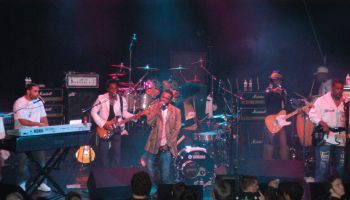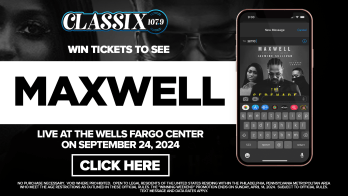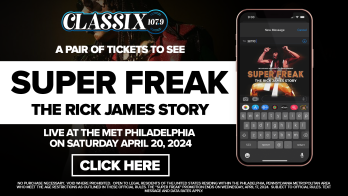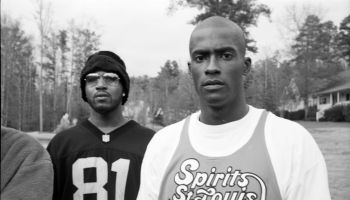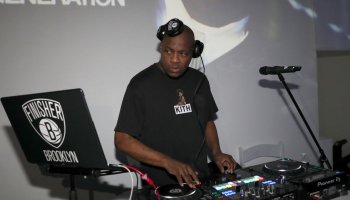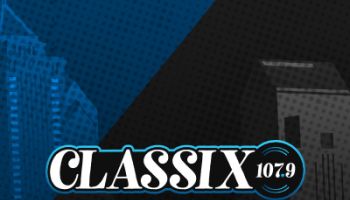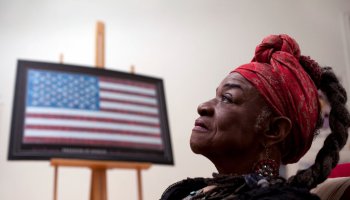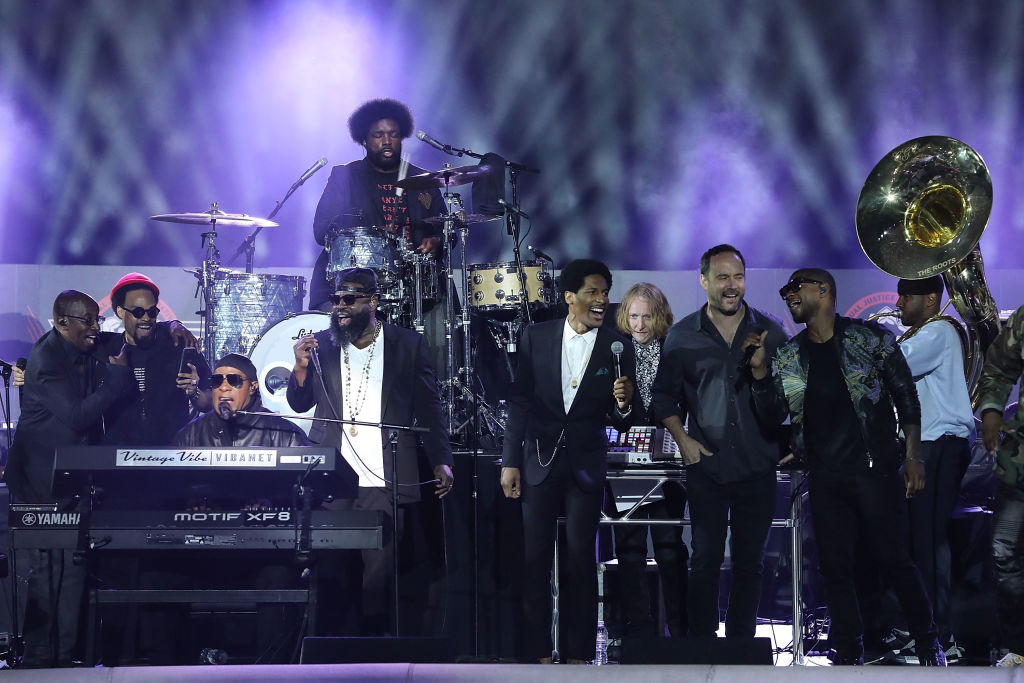
Source: Taylor Hill / Getty
Philadelphia’s former bass player, songwriter and founding member of The Roots, Leonard “Hub” Hubbard has passed away from cancer complications.
Leonard Hubbard, the bass player who toured the world and recorded with Philadelphia’s notorious hip hop band, The Roots for 15 years, sadly made his exit out of this world Wednesday, December 16, 2021 at Lankenau Hospital. “Hub” was 62 when he died.
The Roots band was formed in 1987 by Tariq “Black Thought” Trotter and Ahmir “Questlove” Thompson right here in the home and soul of Philadelphia.
Mr. Hubbard grew up in the heart of West Philly and in close proximity to Philly’s musical legends and greats, Kenny Gamble and Leon Huff. Growing up around 53rd and Girard Avenue, he began playing the bass while only being in the fourth grade. He would later attend Overbrook High School and took private lessons from his teacher Donald Rappaport and Eligio Rossi, who also taught jazz bassist Stanley Clarke. Continuing his musical education, Hubbard studied classical music at Carnegie Mellon University in Pittsburgh and played in jazz, Latin, funk and R & B bands before joining the Roots.
Leonard Hubbard’s wife told ABC6, “It happened quickly. He didn’t suffer a lot.”
Hub played with the group from the mid-1990s until the mid-2000s, including on their acclaimed Things Fall Apart as well as live Roots sessions with JAY-Z, Eminem, and others. He also worked on albums by MC Solaar, the Jungle Brothers, and Jaguar Wright. Hub, a graduate of Pittsburgh’s Carnegie Mellon music program, was a fixture of the band during his tenure, remembered for his incredible bass playing and his trademark chew stick.
“Music is all about what you’re exposed to, and I’ve been exposed to many different things,” Hub said in an interview with E.E. Bradman in 2003. “If you want to play Hip-Hop bass, you have to own a beat machine, you have to know the metronome, and you need some sense of rhythm and timing. But here’s the main thing: You have to listen to yourself play. Record yourself playing a bass line for five minutes. If you can play something fast, then try playing it slow, melodically and groovin’, and make it sound just as good as it did when you played it fast. Listen to it and hear where your playing got weak, and ask yourself why three minutes later you played a fill that messed up the pocket. Even bassists who listen to Hip-Hop sometimes don’t understand the discipline, because once they get onstage and start feeling it, they think, The faster I play, the more exciting! But playing hip-hop is a different discipline. It’s all about listening, understanding the pocket, and knowing your place in it.”








